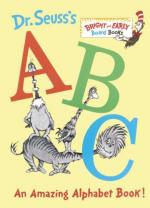|
This section contains 928 words (approx. 4 pages at 300 words per page) |

|
The twenty-six-letter alphabet used by English-speaking cultures is called the Roman or Latin alphabet, for it was during the Roman Empire that it came to resemble the alphabet we use today. However, the Roman alphabet actually has its roots in ancient Egyptian picture-writing, in which a symbol would be used to denote an entire word (just as the symbols "+" and "$" stand for "plus" and "dollar" in the modern alphabet). Eventually the Egyptians found their hieroglyphics too limiting, and they added new symbols to represent the syllables within words: for example, the word "water" has two syllables, and would thus be represented by two symbols ("wa" and "ter"). By combining the syllabic symbols, words and sentences could be formed. Sometime before 1000 b.c., the Semitic people of Syria and Palestine developed their own alphabet, borrowing largely from the Egyptians. By this time, though, the Egyptian alphabet had grown to...
|
This section contains 928 words (approx. 4 pages at 300 words per page) |

|


